Table of Contents
Introduction
It is a perennial herbaceous plant that is native to southern Europe and western Asia. Licorice is a medicinal crop and its botanical name Glycyrrhiza glabra is Greek-based meaning derived from two words as Glykys (sweet) and Rrhiza (root). In Marathi, it is very commonly known as sweet wood and it is used in herbal formulations for the treatment of various diseases. It is a flower-bearing plant and a typical sweet and flavor can be extracted from its root.
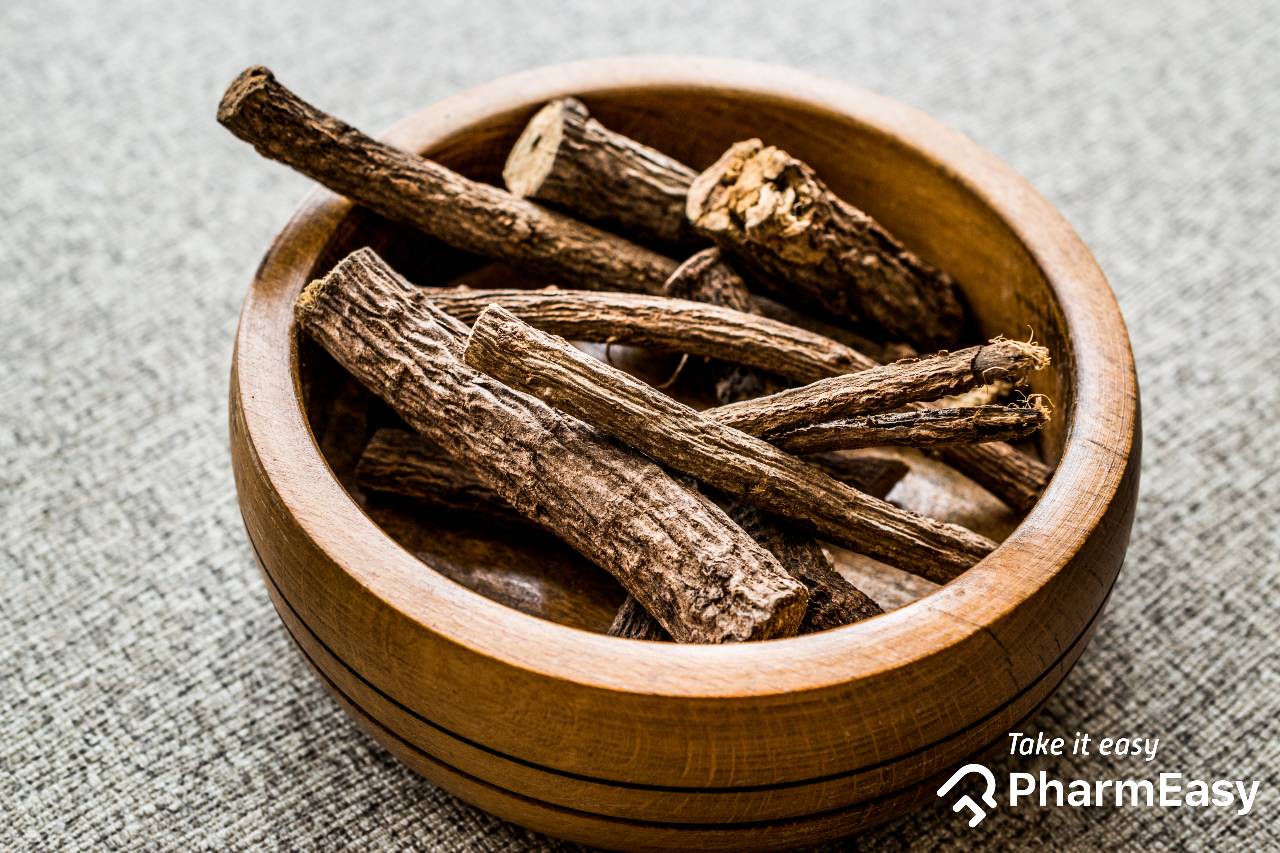
The roots of licorice contain bioactive and aromatic compounds like glycyrrhizin and glycyrrhizic acid. The glycyrrhizin is sweeter than sucrose (30-40 times) and due to this, it is used in beverage, confectionery, dairy, tobacco industries. The likewise aroma can be seen in anise and fennel due to the similarity between the bioactive compounds but from different sources.
Other Names for Licorice
- In English, it is known as Liquorice, Licorice, and Sweetwood.
- In Hindi, it is known as Mulhatti and Jothimadh.
- In Marathi, it is known as Jeshtamadha.
- In Sanskrit, it is known as Madhuka and Yashti-Madhuh.
- In Tamil, it is known as Atimaduram.
- In Telugu, it is known as Yashtimadhukam and Atimadhuranu.
- In Bengali, it is known as Jaishbomodhu and Jashtimadhu.
Based on some studies I came across, licorice roots may contain anti-inflammatory, antioxidant, anti-ageing, and skin-whitening properties and might show you the way to great skin too.
Dr. Rajeev Singh, BAMS
Did you know?
- Licorice root (Mulethi) may help relieve symptoms of acid reflux and heartburn. source: NCCIH
- Licorice root has been found to have potential anti-viral properties against certain viruses. source: NCCIH
- Licorice root may help reduce symptoms of menopause, such as hot flashes. source: NCCIH
- Licorice root may help reduce symptoms of respiratory conditions, such as cough and asthma. source: NCCIH
- Licorice root may have potential anti-inflammatory effects on the skin, making it beneficial for certain skin conditions. source: NCCIH
Active compounds in Licorice
The major part of licorice is roots which are rich in several compounds like monosaccharide, disaccharide (sucrose, 18%), starch, proteins, amino acids, essential aromatic oil, sterols, flavonoids, and saponins. The glycyrrhizin or glycyrrhizic acid is a main bioactive compound that is composed of one unit of glycyrrhetinic acid and two units of glucuronic acid.
Naturally, the pure form of glycyrrhizin is difficult, but it is always associated with salts like calcium or potassium. The sweetish taste of licorice is due to the presence of sucrose – glycyrrhizin and its unique combination gives almost 50 times sweetness compare to sugar.
Based on my observations, licorice roots have multiple medicinal properties. It might help in managing many health conditions involving the liver, kidney, lungs, and circulatory systems. Additionally, it might also help in reducing digestive issues.
Dr. Siddharth Gupta, MD
Benefits of Licorice
Licorice contains several compounds and most of them have antimicrobial and antiviral properties. There are still clinical research studies that are ongoing to understand the benefits of the licorice.
1: In sore throat conditions
Licorice is very affected in sore throat and due to its expectorant properties, it is also used in bronchitis, throat irritations. It can loosen the mucus present in the chest for easing to coughing it out.
2: In Heartburns
Licorice is very beneficial in managing the heartburn problems in that it can improve the normal functioning of the stomach and thereby help in problems like dyspepsia. Also, it can help in relieving the gas problems in the intestine, nausea, and loss of appetite. Licorice has Sita potency and it is very helpful in managing heartburn and stomach problems.
3: Gastric ulcers
Due to the Sita potency, licorice is effective in stomach ulcers. In the mechanism of ulcer prevention, when the licorice is taken, it provides a thick coating mucus lining which further helps in reliving from ulcer irritation. Licorice root extract is rich in Glycyrrhetinic acid which is a potent anti-inflammatory agent, and this helps reduce pain and stomach inflammation.
4: Licorice in cough
Due to the expectorant properties of the licorice extract, it is beneficial in reducing coughing problems and it also helps in reducing the viscous mucus in the chest.
5: Licorice and Tuberculosis
Tuberculosis is a disease where the patient will be suffering from bacterial infections in the lungs. Licorice is best known for its antimicrobial activity and during tuberculosis conditions, it can be used for managing the gram-negative and gram-positive bacteria count in the lungs. Licorice also helps in boosting the much-needed immunity in the patient during tuberculosis.
6: Licorice in Chronic Hepatitis
Hepatitis is a disease related to the liver condition, where the virus can damage the liver cells and it can further lead to chronic hepatitis C. Licorice contains Glycyrrhizin which is known to a strong antiviral agent and this can stop or retard the hepatitis C virus multiplication. Clinically licorice components are shown hepatoprotective activity and due to their antioxidant potential, they can reduce free radical generation and stop further cell damage.
7: Licorice and Infertility
There are research reports which state that licorice can help in improving the sperm count and its motility. This will be beneficial in resolving male infertility problems.
8: Licorice in fatty liver disease
Licorice has strong antioxidant properties and detoxification activity which is beneficial in reducing and reversing fatty liver problems. Licorice improves the activity of enzymes in the liver and then increases the antioxidant levels which help in detoxification. Licorice is very effective in treating non-alcoholic hepatitis due to its anti-inflammatory and hepatoprotective activity.
Medicinal uses of Licorice
- Licorice extract can be used externally in Shingles, Eczema, and Herpes.
- Licorice is used in treating aplastic anemia and also it helps in reducing testosterone in women.
- Licorice extract can boost the immunity of patients in a situation like AIDS.
- Licorice extract is composed of both estrogenic and anti-estrogenic compounds and therefore it can help to resolve hormone-related problems in females.
- Licorice root is composed of mixtures of unique bioactive compounds and it is useful for treating stomach and spleen problems. And this is why it is preferably used in several Ayurvedic formulations.
- There are medicinal oils available in the local medical stores in which licorice is used as an important ingredient for treating hemorrhage, paralysis, epilepsy, and paralysis.
- Licorice is used in treating fevers and diarrhea.
- Licorice extracts and their crude form have wide use in the food industry for preparing sweets, non-alcoholic beverages, and confectionery.
- A very common dark licorice toffee is known to everyone and it is prepared by boiling the root and extracting the dark juice followed by drying.
- Licorice extract is used as a foaming agent in beer preparation which also imparts its flavor into the beverage.
Recommended dosage of Licorice
The dosage and intake of licorice may vary for individuals. There are different forms of licorice products and supplements available in the market.
| Products | Preparation | Dosages/ day |
| Root | The roots of licorice can be chewed directly without processing. | NA |
| Tablet | Licorice tablets (1-2) can be taken before a meal with some water. | 2 times |
| Churna | The half teaspoon of churna can be taken before a meal. | 2 times |
| Capsule | 2 capsules can be taken before a meal with water. | 2 times |
| Candies | 2 candies in chewable form can be taken anytime. | As required. |
| Licorice with milk | ¼ teaspoon of Licorice powder in boiled milk and stir it with a spoon until it dissolves completely. | As required. |
Precautions While Using Licorice
- For women during their pregnancy should avoid taking licorice products because it can lead to lactation problems.
- The patient suffering from heart, liver problems, and hypertension should not take licorice supplements and their products.
Side effects related to Licorice
- The excessive intake of licorice (more than 20 g/ day) with an inappropriate amount can lead to high blood pressure.
- Spleen problems can be related to excessive intake of licorice.
- The excess intake of licorice can cause heart failure in extreme cases.
- The higher doses of licorice are related to pain in muscles, legs, and sometimes in hand swelling.
- Due to its high sugar level and thereby increase in calories in the diet can lead to gain weight.
Frequently Asked Questions (FAQs)
There are different forms of licorice products and supplements available in the medical store. The dark licorice chewable candy is very commonly known to everyone and it can be effectively used during sore throat problems. Also, the Kadha (decoction) or tea can help relieve cough and chest problems.
The licorice extracts showed an anticoagulant property from a few clinical studies. But it is very important to know that it should not be taken along with warfarin since the interaction between both can slower the blood clotting process.
No, licorice is not bad for the liver. Licorice can boost the enzyme activity in the liver, and this will help in reducing the liver cell damage due to lipid peroxidation by suppressing the free radical generation.
No, the fennel is not licorice. But it tastes and smells like fennel since it has a similar type of bioactive constituent that imparts the flavor.
Yes, for the patient suffering from a blood pressure-related problem should not consume an excessive amount of licorice supplements. This can certainly increase blood pressure.
Disclaimer: The information provided here is for educational/awareness purposes only and is not intended to be a substitute for medical treatment by a healthcare professional and should not be relied upon to diagnose or treat any medical condition. The reader should consult a registered medical practitioner to determine the appropriateness of the information and before consuming any medication. PharmEasy does not provide any guarantee or warranty (express or implied) regarding the accuracy, adequacy, completeness, legality, reliability or usefulness of the information; and disclaims any liability arising thereof.
Links and product recommendations in the information provided here are advertisements of third-party products available on the website. PharmEasy does not make any representation on the accuracy or suitability of such products/services. Advertisements do not influence the editorial decisions or content. The information in this blog is subject to change without notice. The authors and administrators reserve the right to modify, add, or remove content without notification. It is your responsibility to review this disclaimer regularly for any changes.



 By
By 


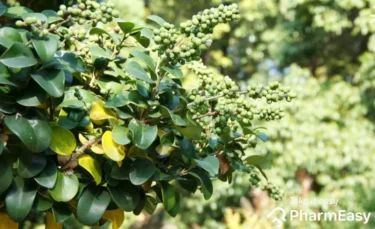
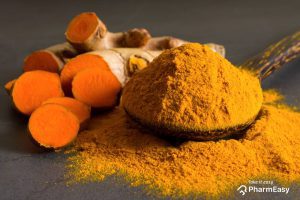


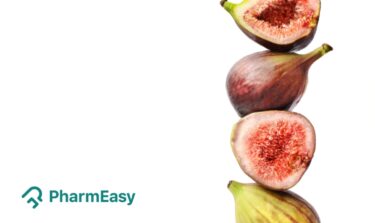

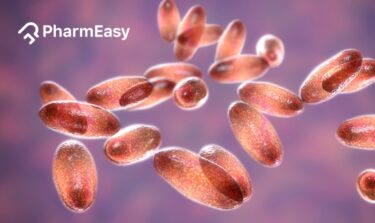


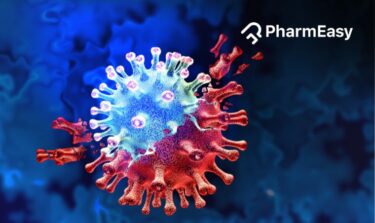
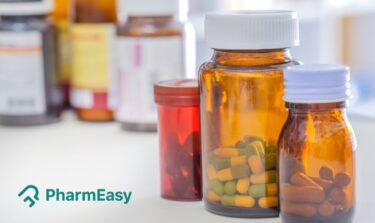
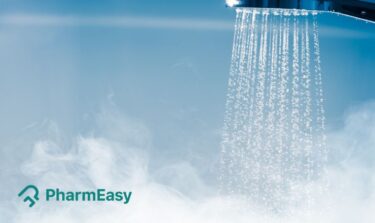

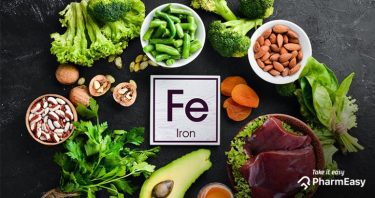





Comments